 W
WGerrit Achterberg was a Dutch poet. His early poetry concerned a desire to be united with a beloved in death.
 W
WHerman Hendrik ter Balkt was a Dutch poet. He won numerous awards throughout his career, among them the 1988 Jan Campert Prize, the 1998 Constantijn Huygens Prize and the 2003 P. C. Hooft Award. He was born in Usselo, Overijssel and died in Nijmegen.
 W
WJohannes Cornelis (Hans) ten Berge is a Dutch poet, prose writer, and translator, who publishes under the name H.C. ten Berge. He has won numerous awards throughout his career, among them the 1996 Constantijn Huygens Prize. He lives in Zutphen.
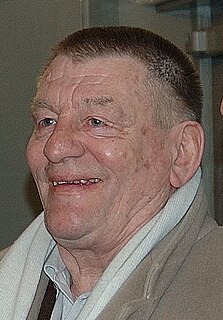 W
WHendrik Jan Marsman, better known by his pen name, J. Bernlef, was a Dutch writer, poet, novelist and translator, much of whose work centres on mental perception of reality and its expression. He won numerous literary awards, including the Constantijn Huygens Prize in 1984 and the P. C. Hooft Award in 1994, both of which were for his work as a whole. His book Hersenschimmen features on the list of NRC's Best Dutch novels.
 W
WJakobus Cornelis (Jacques) Bloem was a Dutch poet and essayist. Between 1921 and 1958 he published fourteen volumes of poetry. In 1949 he won the Constantijn Huygensprijs, one of the country's highest literary awards, and in 1952 the P. C. Hooft Award for his literary oeuvre. In 1965, in rapidly declining health, he was awarded the highest Dutch-language literary award, the Prijs der Nederlandse Letteren. He was nominated for the Nobel Prize in Literature.
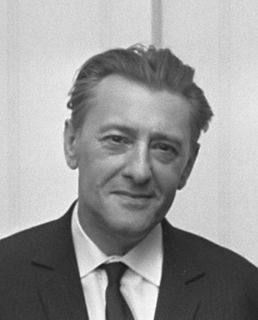 W
WLouis Paul Boon was a Belgian writer of novels, poetry, pornography, columns and art criticism. He was also a painter. He is most known for the novels My Little War (1947), the diptych Chapel Road (1953) / Summer in Termuren (1956), Menuet (1955) and Pieter Daens (1971).
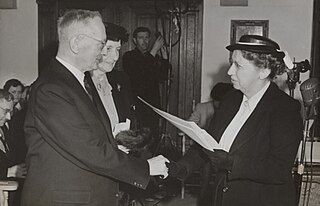 W
WFerdinand Bordewijk was a Dutch author. His style, which is terse and symbolic, is considered to belong to New Objectivity and magic realism. He was awarded the P. C. Hooftprijs in 1953 and the Constantijn Huygensprijs in 1957. Character (1997), an Academy Award-winning film directed by Mike van Diem, was based on his novel Karakter (1938).
 W
WJeroen Godfried Marie (Jeroen) Brouwers is a Dutch writer.
 W
WSimon Carmiggelt was a Dutch writer, journalist, and poet who became a well known public figure in the Netherlands because of his daily newspaper columns and his television appearances.
 W
WPierre H. Dubois was a Dutch writer and critic. He was awarded the Constantijn Huygens Prize in 1952, for Een houding in de tijd, and again in 1985.
 W
WWilhelmus Johannes Maria Antonius Asselbergs, better known under his pseudonym Anton van Duinkerken, was a Dutch poet, essayist, and academic.
 W
WJoannes Gommert Elburg, writing as Jan "the man" G. Elburg was a Dutch poet. He won numerous awards throughout his career, among them the 1976 Constantijn Huygens Prize.
 W
WAlphonsus Josephus de Ridder, was a Belgian writer and poet who wrote under the pseudonym Willem Elsschot. A number of his works have been translated into English.
 W
WJohannes Aloysius Antonius Engelman was a Dutch writer. He was the recipient of the Constantijn Huygens Prize in 1954.
 W
WElisabeth Françoise Eybers was a South African poet. Her poetry was mainly in Afrikaans, although she has translated some of her own work into English.
 W
WPieter Nicolaas/Nicolaus van Eyck
 W
WLouis Ferron was a Dutch novelist and poet.
 W
WDoctor Frederik Carel Gerretson was a Dutch writer, essayist, historian, and politician.
 W
WMaurice, Baron Gilliams was a Flemish writer and poet.
 W
WJan Greshoff was a Dutch journalist, poet, and literary critic. He was the 1967 recipient of the Constantijn Huygens Prize.
 W
WArnon Yasha Yves Grunberg is a Dutch writer of novels, essays, and columns, as well as a journalist. He wrote some of his work under the heteronym Marek van der Jagt. He lives in New York.
 W
WHélène "Hella" Serafia Haasse was a Dutch writer, often referred to as the "Grande Dame" of Dutch literature, and whose novel Oeroeg (1948) was a staple for generations of Dutch schoolchildren. Her internationally acclaimed magnum opus is Heren van de Thee, translated to The Tea Lords. In 1988 Haasse was chosen to interview the Dutch Queen for her 50th birthday after which celebrated Dutch author Adriaan van Dis called Haasse "the Queen among authors".
 W
WAbel Jacob Herzberg was a Dutch Jewish lawyer and writer, whose parents were Russian Jews who had come to the Netherlands from Lithuania. Herzberg was trained as a lawyer and began a legal practice in Amsterdam, and became known as a legal scholar also. He was a Zionist from an early age, and around the time of the outbreak of World War II he attempted to emigrate with his family to Palestine. During the war he remained active in Jewish organizations until he was interned, with his wife, in Bergen-Belsen concentration camp, where his legal background and status as a legal scholar earned him a seat on a prisoners' court. After their captors moved them from Bergen-Belsen, he and his wife were later liberated by the Soviets and made it back to the Netherlands, where they were reunited also with their children. He continued his legal practice in Amsterdam, though he traveled to Palestine and was offered an administrative position in newly-founded Israel.
 W
WJudith Frieda Lina Herzberg is a Dutch poet and writer.
 W
WHan Gerard Hoekstra was a Dutch poet, best known for his children's literature.
 W
WPierre Kemp was a Dutch poet and painter, the recipient of the Constantijn Huygens Prize in 1956 and the P. C. Hooft Award in 1958. His younger brother was the writer Mathias Kemp.
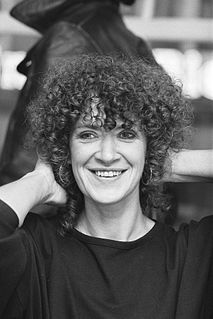 W
WMensje van Keulen, pseudonym of Mensje Francina van der Steen, is a Dutch writer.
 W
WAnthonie "Anton" Koolhaas was a Dutch journalist, novelist, and scenario writer.
 W
WAlfred Kossmann was a Dutch poet and prose writer. Kossmann and his brother Ernst Kossmann, a distinguished Dutch historian, were twins.
 W
WJohanna Rutgera 'Joke' van Leeuwen is a Dutch author, illustrator, and cabaret performer.
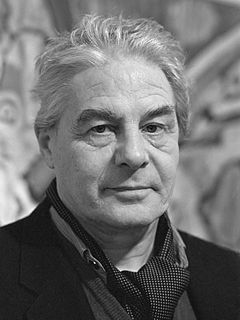 W
WLucebert was a Dutch artist who first became known as the poet of the COBRA movement.
 W
WMarga Minco is a Dutch journalist and writer. Her real surname was Menco, but an official accidentally switched the first vowel.
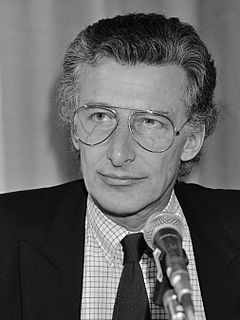 W
WHarry Kurt Victor Mulisch was a Dutch writer. He wrote more than eighty novels, plays, essays, poems, and philosophical reflections. Mulisch's works have been translated into over thirty languages.
 W
WCharlotte Jacoba Maria Mutsaers is a Dutch painter, prose writer and essayist. She won the Constantijn Huygens Prize (2000) and the P. C. Hooft Award (2010) for her literary oeuvre.
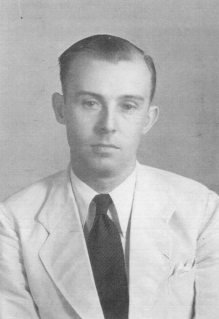 W
WRobert Nieuwenhuys was a Dutch writer of Indo descent. The son of a 'Totok' Dutchman and an Indo-European mother, he and his younger brother Roelof, grew up in Batavia, where his father was the managing director of the renowned Hotel des Indes.
 W
WMartinus Nijhoff was a Dutch poet and essayist. He studied literature in Amsterdam and law in Utrecht. His debut was made in 1916 with his volume De wandelaar. From that moment he gradually expanded his reputation by his unique style of poetry: not experimental, like Paul Van Ostaijen, yet distinguished by the clarity of his language combined with mystical content. He was a literary craftsman who employed skilfully various verse forms from different literary epochs.
 W
WLeon Helena Sylvain Nolens, pseudonym Leonard Nolens, is a Belgian poet and diary writer. He graduated from the Hoger Instituut voor Vertalers en Tolken in Antwerp.
 W
WCees Nooteboom is a Dutch novelist, poet and journalist. After the attention received by his novel Rituelen, which received the Pegasus Prize, it was the first of his novels to be translated into an English edition, published in 1983 by Louisiana State University Press of the United States. LSU Press published his first two novels in English in the following years, as well as other works through 1990. Harcourt and Grove Press have since published some of his works in English.
 W
WWillem Jan Otten is a Dutch prose writer, playwright and poet, who in 2014 won the P. C. Hooft Award for lifetime literary achievement.
 W
WSybe Minnema, known by his pen name Sybren Polet, was a Dutch prose writer and poet. He won numerous awards, among them the 2003 Constantijn Huygens Prize.
 W
WAdriaan Roland Holst was a Dutch writer, nicknamed the "Prince of Dutch Poets". He was the second winner, in 1948, of the Constantijn Huygens Prize. He was nominated for the Nobel Prize in Literature.
 W
WAnna Helena Margaretha (Annie) Romein-Verschoor was a Dutch author and historian. She received the Constantijn Huygens Prize in 1970.
 W
WLambertus Roelof (Bert) Schierbeek was a Dutch writer. He won numerous awards throughout his career, amongst them the 1991 Constantijn Huygens Prize.
 W
WAnna Maria Geertruida "Annie" Schmidt was a Dutch writer. She is called the mother of the Dutch theatrical song, and the queen of Dutch children's literature, praised for her "delicious Dutch idiom," and considered one of the greatest Dutch writers. An ultimate honour was extended to her posthumously, in 2007, when a group of Dutch historians compiled the "Canon of Dutch History" and included Schmidt, alongside national icons such as Vincent van Gogh and Anne Frank.
 W
WAntonius Otto Hermannus (Toon) Tellegen is a Dutch writer, poet, and physician, known for children's books, especially those featuring anthropomorphised animals, particularly those about an ant and a squirrel. His writings are also enjoyed by adults, due to the amusing, bizarre situations that Tellegen creates, as well as their dealings with philosophical subjects.
 W
WJan van Nijlen was a Belgian writer and poet. He was born at Antwerp and died at Ukkel.
 W
WM. Vasalis, pseudonym for Margaretha (Kiekie) Droogleever Fortuyn-Leenmans was a Dutch poet and psychiatrist.
 W
WSimon Vestdijk was a Dutch writer.
 W
WFranciscus Wilhelmus Maria Broers was a Dutch writer, who published using the pseudonym Jacq Firmin Vogelaar. In 1992 he won the Ferdinand Bordewijk Prijs for his novel De dood als meisje van acht. In 2006 he won the Constantijn Huygens Prize for his collected works.
 W
WHendrik (Henry) de Vries was a significant Dutch poet and painter. He was an early surrealist, was liberal-minded, and preached vitality. The subconscious mind plays a crucial role in his poetry.
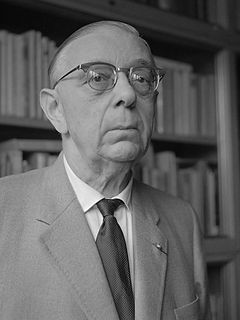 W
WVictor Emanuel van Vriesland was a Dutch Jewish writer and critic. He studied at the gymnasium in The Hague and then at the University of Dijon.He was literary and artistic journalist, editor of a weekly magazine.He received the Constantijn Huygens Prize in 1958 and the P. C. Hooft Award in 1960. He was the president of the Dutch Pen Club. From 1962 to 1965 van Vriesland was President of PEN International, the worldwide association of writers.Van Vriesland writes as easily in French as in his native language and likes even the refinement of sintaxe and prosody: Te souviendra t-il de mon nom, de ma tendresse? - Le vent qui bat ma fenetre sans cesse L'effacera.
 W
WElizabeth (Beb) Vuyk was a Dutch writer of Indo (Eurasian) descent. Her Indo father was born in the Dutch East Indies and had a mother from Madura, but was ‘repatriated’ to the Netherlands on a very young age. She married into a typically Calvinist Dutch family and lived in the port city of Rotterdam. Vuyk grew up in the Netherlands and went to her father’s land of birth in 1929 at the age of 24. 3 years later she married Fernand de Willigen, a native born Indo that worked in the oil and tea plantations throughout the Indies. They had 2 sons, both born in the Dutch East Indies.
 W
WJan Hendrik Wolkers was a Dutch author, sculptor and painter.